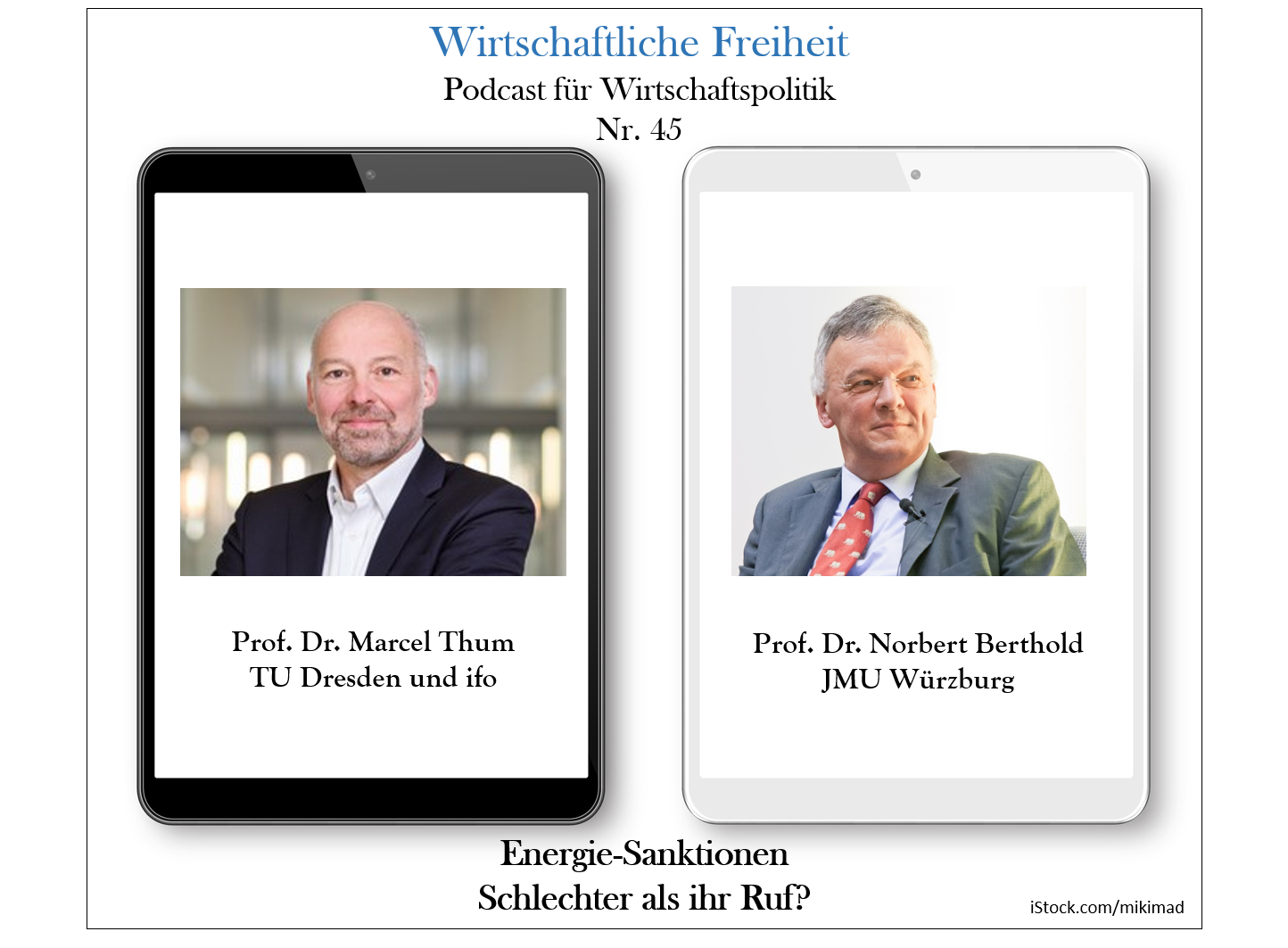With the Ukraine crisis, the discussion about sanctions is back. First Western countries threatened them. The threats were intended to deter Russia from invading Ukraine. That did not work. Tough sanctions should then help to end the Russian war of aggression as quickly as possible. After almost 1 ½ years that doesn’t seem to be working out as hoped either. The Russian economy has not collapsed, Russian missiles and drones are murdering people, destroying houses and reducing Ukraine’s infrastructure to rubble. Russia still occupies 1/5 of the Ukrainian state. An end to the sanctions policy against Russia is therefore not in sight. The EU Commission has just agreed on the 11th package of sanctions. One focus of the sanctions is in the energy sector, coal, oil and gas. Many economists believe that tough energy sanctions will take effect, albeit with a time lag. However, Kai A. Konrad (MPI) and Marcel Thum (TU Dresden) are skeptical. You asked whether sanctions for fossil fuels are at all suitable as a means of exerting pressure in negotiations. Can energy embargoes really put enough pressure on resource-producing countries to shorten the duration of the conflict and make the sanctioned country more concessional? Or are the energy sanctions against Russia a flop?
Prof. Dr. Norbert Berthold (JMU) in conversation with Prof. Dr. Marcel Thum (TU Dresden and Ifo Dresden)
From the content:
Why sanctions at all?
What are the goals of the sanctions against Russia?
Do energy sanctions shorten the duration of conflicts?
Do “shaky” property rights change the effectiveness of sanctions?
What does this mean for sanctions policy?
The participants:
Prof. Dr. Marcel Thum is Professor of Economics at the Technical University of Dresden and Director of the ifo Institute in Dresden. He worked at the LMU in Munich and at the Woodrow Wilson School at Princeton University. Marcel Thum has been a professor of economics, in particular public finance, at the TU Dresden since 2001 and has been head of the Ifo Institute’s Dresden branch since 2004.
Prof. Dr. Norbert Berthold is professor (em.) for economics, in particular economic order and social policy at the Julius-Maximilians-University of Würzburg. He worked at the Universities of Freiburg, Münster, Basel, Hamburg, Düsseldorf and Würzburg. Norbert Berthold is the initiator and operator of the economist blog “Wirtschaftsfreiheit” and thus also the namesake and initiator of this podcast.
The Regulatory Journal
